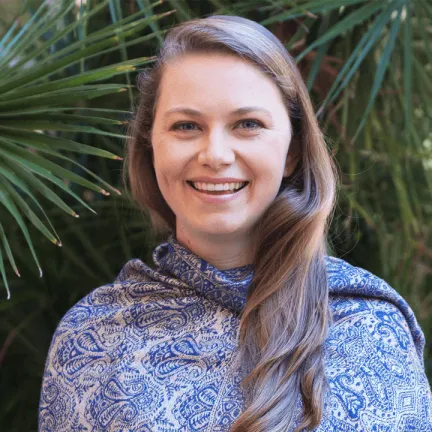Experience Stanford GSB with a focus on climate change, energy, and the environment.
The planetary scope and ubiquitous impact of the climate change challenge must be met with urgent innovation and bold leadership.
Join a Community of Passionate Environmental Leaders
Stanford GSB is home to a dedicated community of aspiring environmental leaders. Their generous advice and example of perseverance, influence, and courage will inspire you and strengthen your confidence in your ability to make a difference. To get started, student clubs are a perfect way to explore your environmental interests and build a relevant network.
Learn from the Experts
Numerous courses taught by experts in the field of climate change, energy, and the environment are available to students, both within Stanford GSB and around the university. Business and management courses develop leaders to tackle the climate crisis, while courses throughout the university provide a scientific perspective. Think about pursuing the MS Environment and Resources (E-IPER)/MBA joint degree program with Stanford School of Earth, Energy and Environmental Sciences.
Featured Courses
- Introduction to Environmental and Resource Systems
- The Technology, Politics, and Finance for Solving Global Warming
- Clean Energy Opportunities
- Energy: Innovation, Policy & Business Strategy
Make a Difference While Learning
Explore innovative financial tools to help restore forests during your summer internship, organize a climate summit to create space for meaningful dialogue, or pitch an environmental venture for investment. Our experiential learning opportunities empower you to have an impact while you are at school. We offer generous fellowships to make those experiences possible.
Grow Your Understanding
Special events, conferences, and distinguished guest speakers expose Stanford GSB students to innovative ideas and broad networks at the intersection of business and the environment.
Power Your Environmental Career Right after Graduation
We will help you get in the game and take the first steps in your post-Stanford GSB environmental career. Through fellowships, awards, and loan forgiveness, students joining environmental NGOs, governmental agencies, or who are launching a high-impact venture, like one aimed at replacing single-use plastic water bottles, are able to receive financial assistance and support.
Experience the Potential of an Interdisciplinary University Network
When you join Stanford GSB you gain access to Stanford’s extensive interdisciplinary resources dedicated to fighting climate change.
















